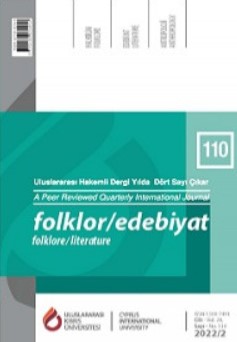Herman Melville’in Edebi Yaratıcılığında Gotik ve Barok İmgelem, Hegelci Spekülatif ve Spinozacı İçkinlik Düzlemi
Gothic and Baroque Imagination, Hegelian Speculative and Spinozist Plane of Immanence in Herman Melville’s Literary Creativity
Author(s): Ömer KÜÇÜKSubject(s): Aesthetics, Early Modern Philosophy, 19th Century Philosophy, Theory of Literature, American Literature
Published by: Uluslararası Kıbrıs Üniversitesi
Keywords: Melville; Gothic; Hegel; speculative; Spinoza; plane of immanence; becoming;
Summary/Abstract: In this article, I try to relate Herman Melville’s literary creativity to Gothic and baroque art forms to understand the aesthetic vision revealed in his novels more in a more comprehensive manner. Melville’s aesthetic vision challenges the understanding and it can best be understood in relation to northern artistic styles. Another cultural form, Hegel’s dialectics with its speculative sentences, as the counterpart of northern art in philosophy, is another key to understand Melville’s literary vision. However, Melville does not share Hegel’s rational aims. His literary vision can be better understood through Spinoza’s substance, which combines absolute rationality with a sense of meaninglessness. The main subject in Melville’s novels is not limited to human heroes, but rather a whole field of existence that appears on a ship or an island. Deleuze’s concept“plane of immanence”, which is inspired by Spinoza’s substance, can help to understand this holism of Melville’s novel-being.On this plane of immanence, “assemblages” and “becomings” emerge between humans, animals and plants. Behind the novel-being as the plane of immanence, the capitalist mode of production announces itself as the main cause of movement. In the study, structuralism inspired methods such as establishing formal analogies and homologies were used while relating distinct literary, artistic and philosophical forms. Thus, a step was taken to make sense of Melville’s literary creativity and contextualize it in the field of cultural forms.
Journal: Folklor/Edebiyat
- Issue Year: 28/2022
- Issue No: 110
- Page Range: 439-459
- Page Count: 21
- Language: Turkish

